SUMMARY
This is AI generated summarization, which may have errors. For context, always refer to the full article.
![[OPINION | Newspoint] Muzzling by sub judice](https://www.rappler.com/tachyon/2020/11/TL-De-Lima-sun-judice-November-13-2020.jpg)
Senator Leila de Lima, already the most oppressed victim of the Duterte regime — in police detention for 3 years and 8 months now, on implausible allegations — is being slapped yet another restriction: sub judice.
De Lima’s persecutors from the Department of Justice want the court trying her case to cite her lawyers in contempt for violating that rule. If the court allows itself to be goaded and decides to penalize the lawyers, it will only have proved itself unreasonable and insecure.
The contempt charge is built around media reports on the latest hearing. Quoting de Lima’s camp as the source, the reports had a couple of particularly newsworthy revelations: a drug convict, one of a number herded from the penitentiary to implicate de Lima, took back his own testimony; and an Anti-Money Laundering Council investigator belied accusations of any illegal hidden transactions involving her.
By the sub judice rule, those things should not have been revealed, the justice department contends. It did not say whether they were untrue, though. It only criticized de Lima’s lawyers as cherry picking; and, doubtless intending precisely to present itself as righteously mindful, it wouldn’t dare do any cherry picking of its own. Needless to say, the penitentiary is not at all your hospitable environment for growing cherries.
Anyway, why should anything that transpires in the trial of a case in the public interest be kept from being reported, or commented on, in the media? Or talked about, opinionatedly, in public? How does the sub judice rule square with press freedom and the people’s right to know? Or with the very essence of justice, which, dispensed without full transparency, can only fall short?
As it happens, Rappler has in its files an answer from the Supreme Court, no less. (It was published on May 19, 2018, and occasioned by an issue peripheral to the quo warranto case the Supreme Court was hearing against its own Chief Justice, Ma. Lourdes Sereno. The principal case against her alleged she had failed to meet certain technical requirements of her appointment and therefore should not have been allowed to assume office as Chief Justice. In the end, in a ruling dripping with prejudice, the court ousted her. The sub judice rule itself was invoked to stop her speaking about her case outside the closeted court.) Here’s the relevant Supreme Court quote published by Rappler:
“…the sub judice rule restricts comments and disclosures pertaining to the judicial proceedings in order to avoid prejudging the issue, influencing the court, or obstructing the administration of justice.”
A potential cause and effect relationship is drawn between the first and second risks: any prejudgment of an issue “under a judge” — that’s what sub judice translates to literally — could influence that judge in making the legal, final, consequential decision.
I’ve always thought it all in keeping with the philosophy of democracy that anything and everything is open to public discussion and scrutiny or, if you like, prejudgment. And for good reason, too: the wider the discussion of an issue, the finer its distillation. At any rate, if any confusion is caused, a judge with the proper constitutional mandate shall resolve it in the end.
I would find it rather curious that a judge — any judge — should be so lacking in confidence as to feel susceptible to undue influence. Such a judge, indeed, has no business deciding human fates.
As for obstruction of justice, the spectacular irony is that it can only be made possible by the very people appointed to dispense justice — by prohibiting anyone else looking at what they do and how they do it and speaking out.
The sub judice rule is definitely no help at all. In fact, it’s a serious hazard to the freedoms that form the bedrock of our democracy — freedom of expression and freedom of the press.
And its particularly intended victim — as if she has not been victimized enough by injustice — is Senator de Lima.
Taken to court on the word of convicts, who, by consenting to testify for the Duterte regime, could only look to a better deal than the life terms meted them, and denied bail at every turn in spite of growing evidence of the absence of evidence against her, de Lima is now further mocked with petty injustice: her voice is suppressed sub judice. – Rappler.com
Add a comment
How does this make you feel?
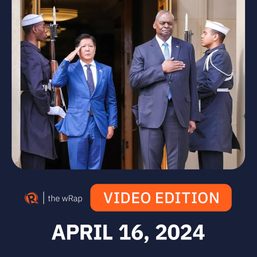
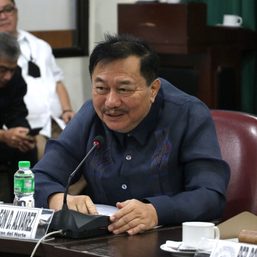
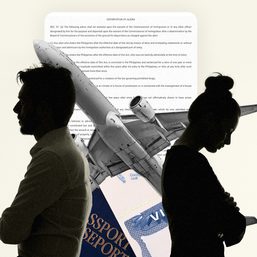
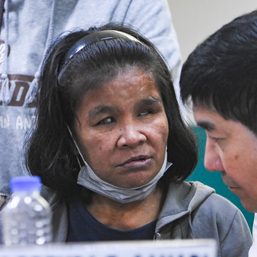

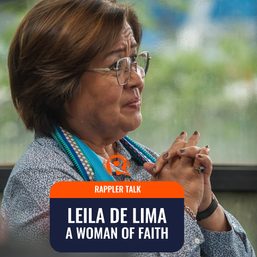
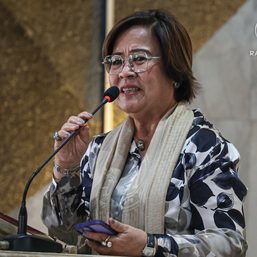
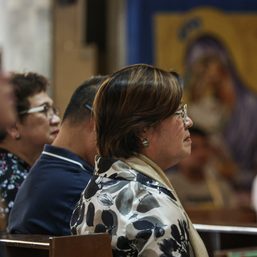
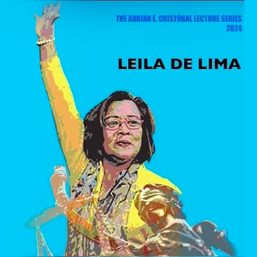
![[EDITORIAL] Justice, Philippine style: Acquitted sa plunder, pero may kabig naman](https://www.rappler.com/tachyon/2024/01/animated-jinggoy-estrada-acquittal-carousel.jpg?resize=257%2C257&crop_strategy=attention)
There are no comments yet. Add your comment to start the conversation.